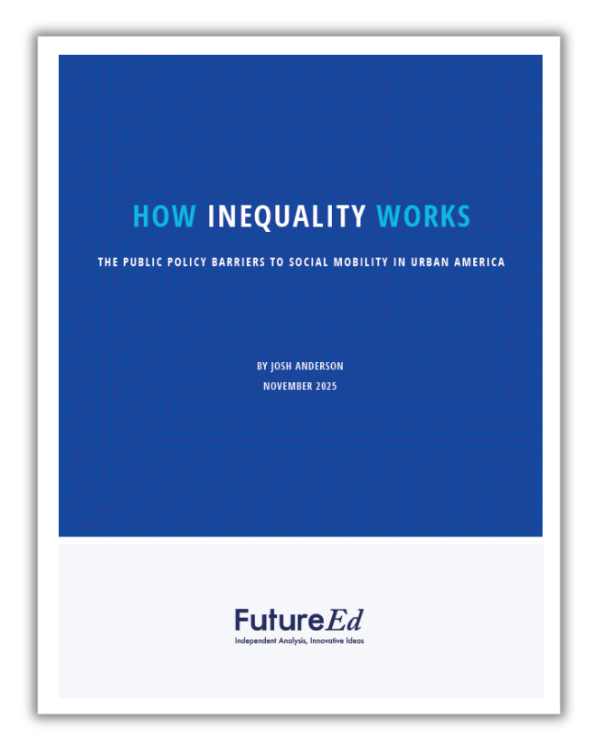 Education is a powerful engine of opportunity, but it often cannot overcome the broader structural barriers that shape children’s lives. Across the nation, policies in housing, health care, education, employment, banking, criminal justice, and the social safety net intersect in ways that reinforce disadvantage and limit economic mobility for millions of Americans.
Education is a powerful engine of opportunity, but it often cannot overcome the broader structural barriers that shape children’s lives. Across the nation, policies in housing, health care, education, employment, banking, criminal justice, and the social safety net intersect in ways that reinforce disadvantage and limit economic mobility for millions of Americans.
In How Inequality Works: The Public Policy Barriers to Social Mobility in Urban America, FutureEd Senior Fellow Josh Anderson offers a comprehensive analysis of how these systems interact to hold students and families in poverty. Drawing on decades of social science research, the report examines the policy mechanisms that perpetuate inequity, explores how disadvantage compounds over a lifetime, and highlights the need for coordinated, cross-sector solutions to expand opportunity.

